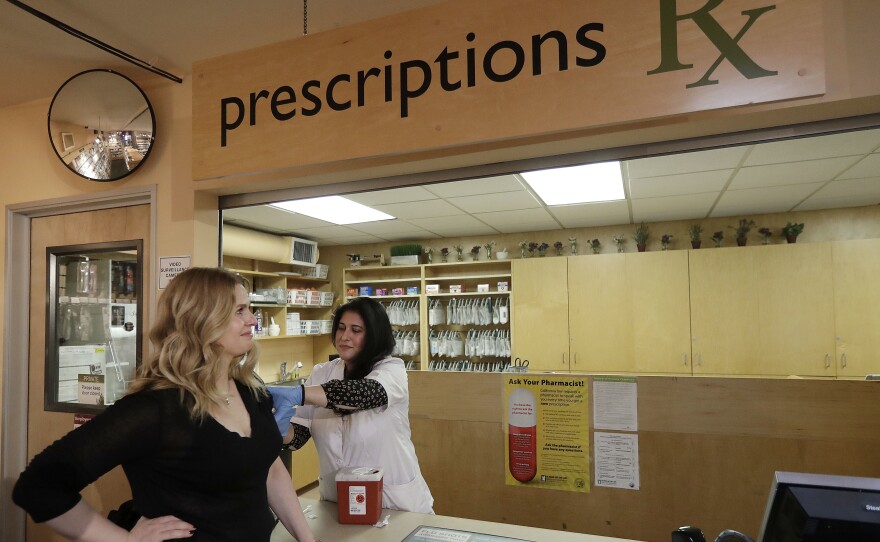The flu season typically begins in October and health experts are worried how that will collide with the current coronavirus pandemic. While a milder flu season in the Southern Hemisphere may mean good news for the U.S., a local doctor is still encouraging San Diegans to be prepared.

KPBS Health Reporter Tarryn Mento spoke with Kaiser Permanente’s Dr. Will Tseng about the efficacy of the annual flu vaccine and why it's helpful during the pandemic.
Q: Flu season is coming up. We're in the middle of a pandemic. What is the first thing that the public needs to know?
The public needs to know that the flu vaccine works. For the last several years, the CDC has looked into the study and proven, without a shadow of doubt, that you can prevent hospitalizations up to 37%. And if you do get admitted, you reduce your chances of ending up in intensive care unit by 82%.
Q: We do know that the efficacy of the flu vaccine changes year to year. I believe it's 40 to 60% efficacy based on year. That's not really a convincing argument for people.
That's why I said that if you have been vaccinated, you can reduce your chances of ending up in the hospital. But more importantly, even if you do come in for flu like-infection, if you've been vaccinated, it drops your chances of ending up in the intensive care unit or even dying from the disease by up to 82%... On top of that, you can also prevent yourself from spreading it to someone who's older or younger who are more vulnerable, and that's really what we want — to protect yourself but to protect your family as well.
Q: How are you going to spread that message that results in people actually coming in at a time when people are scared to come in?
I guess the best example is this: Not only do we believe in this, we talk the talk and we walk the walk. So all our physicians, all our staff positions, every year we have a vaccination rate in the high 90 percent. It's up to 99.3% several years because we believe in it. We're not just talking about it. We follow that advice. The only exceptions I'll tell you is people who take extended leaves or if they have valid a medical concern that's documented.
Q: That's your staff. What about roll out for the public? There's a lot of concern about actually coming in even for even urgent medical needs — we’ve seen those numbers are lower during the pandemic — how are we getting people to actually physically walk through a door for preventative care?
Perfect question. We've learned from this pandemic. We've learned that we can use technology wisely, keep the same quality, keep the same service and increase the safety. So last thing we want is to transmit from person to person. So we've leveraged technology. We have walk-up, drive-up. We have on-site. We have face-to-face. We have all different means to get you to have the vaccine receive the vaccine safely. So we've also put a QR code. So instead of the traditional walk up to the clinic, grab a clipboard, grab a pen, sign it, everything is digital, even the education components digital, so we can minimize that risk of transmission. It's all about prevention. It's all about making sure that you don't get sick. And then we help you get what you need to keep you healthy, keep you and your family healthy.
Q: Why is it more important to get the flu vaccine during the COVID-19 pandemic?
If you get flu and you get damage in the lungs from flu, you are more susceptible to other viruses, not just COVID alone, but all the other lung diseases.
Q: There are tens of thousands of people in San Diego County who have previously tested positive for COVID-19. Should they be getting the vaccine?
Absolutely they should be. Now, there is an exception. If you're active with COVID, that is an exception because we don't want you to transmit the virus to other people as well. We want to keep you safe, so after you recovered from COVID, yes, absolutely you should be one getting the vaccine. It's very important because we know COVID has some lasting effects in the lungs, so you don't want to damage your lungs further. You want to make sure you prevent yourself from getting infections.






